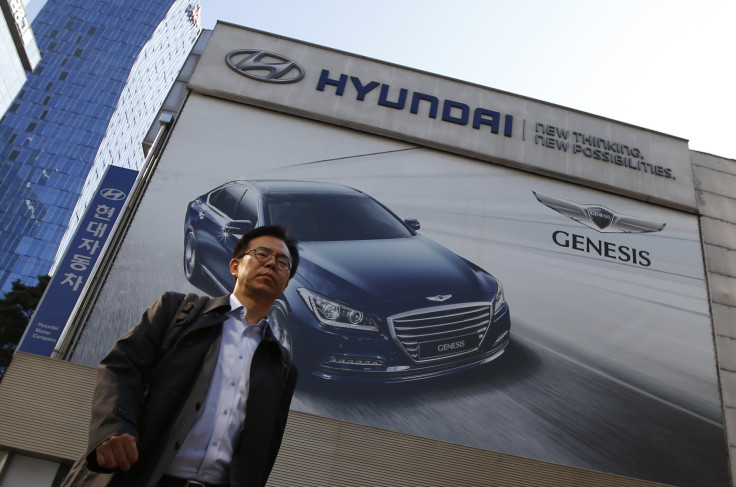Hyundai, Kia To Pay $100M In Penalties Over Clean Air Act Violations, 1M Vehicles Involved

Hyundai and Kia will pay $100 million in penalties for violating the Clean Air Act after federal regulators found that the automakers misled lawmakers about the amount of greenhouse gases their vehicles emit and overstated the fuel efficiencies of some their models, the U.S. Justice Department and the Environmental Protection Agency announced Monday. The settlement, the largest of its kind in the Clean Air Act’s nearly 51-year history, has to do with the sale of approximately 1.2 million vehicles that will emit about 4.75 million more metric tons of greenhouse gases than were certified to the EPA.
“Greenhouse gas emission laws protect the public from the dangers of climate change, and today’s action reinforces EPA’s commitment to see those laws through,” EPA Administrator Gina McCarthy said in a statement released Monday. “Businesses that play by the rules shouldn’t have to compete with those breaking the law. This settlement upholds the integrity of the nation’s fuel economy and greenhouse gas programs and supports all Americans who want to save fuel costs and reduce their environmental impact.”
The car companies have agreed to pay a $100 million civil fine in addition to forfeiting $200 million worth of “carbon credits,” which automakers earn for making vehicles with lower emissions than the law requires. Car manufacturers can either sell these credits to other automakers or use them to offset emissions from less fuel-efficient models.
Federal regulators discovered the violations in 2012, according to the Justice Department. Field investigators found that Hyundai and Kia had inaccurately reported higher fuel-economy ratings based on skewed testing protocols. Regulators found that the car companies miscalculated the fuel economies of 1.2 million vehicles by between one and six miles per gallon. Hyundai and Kia have agreed to revise the way that they test the fuel efficiency of their vehicles.
Attorney General Eric Holder said the settlement “underscores the Justice Department’s firm commitment to safeguarding American consumers, ensuring fairness in every marketplace, protecting the environment, and relentlessly pursuing companies that make misrepresentations and violate the law.”
© Copyright IBTimes 2024. All rights reserved.






















